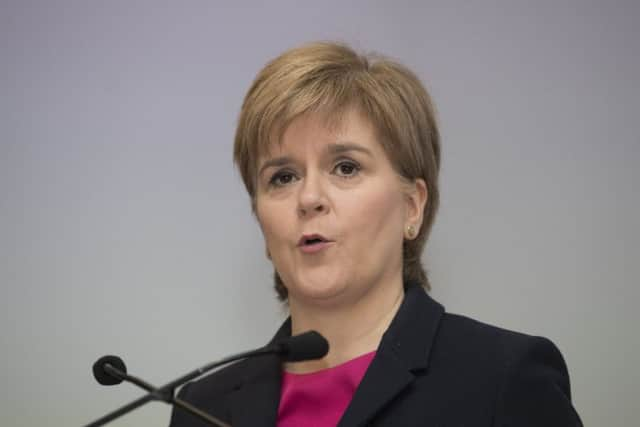SNP: Tax breaks needed to tempt skilled migrants to Scotland
The policy will be at the heart of a “Come to Scotland” package that aims to bring talent and investment to Scotland.
The 354-page document will say a “transition relief” should be explored for highly skilled migrant workers to offset costs associated with moving to Scotland against income tax.
Advertisement
Hide AdAdvertisement
Hide AdToday the SNP will finally publish the results of its “Sustainable Growth Commission”, which was ordered by Nicola Sturgeon to reboot the arguments for independence.


Chaired by the economist and former SNP MSP Andrew Wilson, it will propose tax breaks for migrants as a way of bringing investors, entrepreneurs, highly skilled workers and students to Scotland.
The proposal comes at a time when many Scots are facing income tax hikes as a result of the Scottish Government’s move to raise more cash from those earning more than £33,000.
Last night the Scottish Conservatives claimed the new policy amounted to an admission that Ms Sturgeon’s decision to increase income tax discouraged people from settling in Scotland
But the document will argue that the ageing population north of the Border means that a different approach is required on migration than the “hostile” approach adopted by the UK government.
It will also say that the need to attract more talent is urgent given the danger that Brexit poses to attracting skilled workers.
According to the document, its “Come to Scotland” package would add significant value on top of the net fiscal contribution of £1.3 billion that the 429,000 Scottish residents born outside the UK already make to Scotland’s economy.
Mr Wilson will also recommend that policies are introduced to encourage returning Scots and people from the rest of the UK to come to Scotland.
Advertisement
Hide AdAdvertisement
Hide AdHis paper will say that Scotland should retain an additional 5,000 international graduates each year to deliver an economic boost of £1.5 billion per year within a decade.
It also proposes reducing costs, lowering investment thresholds and increasing support for entrepreneurs and a new visa system benchmarked on the most efficient and easy to use in the world. The plans are fundamental to what Mr Wilson will describe as the “3ps” – population, participation and productivity – which underpin the report.
Last night Mr Wilson said: “We have a great opportunity for Scotland to strike a completely different tone on a vitally important area of economic policy – how we attract talent to our country.
“For the next 25 years all of Scotland’s projected population growth is expected to come from migration. Under current UK policy there is a real danger that the working population in Scotland could fall – meaning fewer people creating wealth, jobs and contributing to our NHS.
“Growing our working population and, through it, our economy is perhaps the greatest national challenge we have – and is made even more urgent by Brexit and the threat it poses to our working age population. Scotland needs more migration to drive our economy forwards and we need to extend a friendly welcome to international talent.
“It is a fact that those born outside the UK who have made Scotland home for their businesses, their research or their families are significant net contributors to our economy and public finances – we need more of this.”
Scottish Conservative shadow finance secretary Murdo Fraser claimed the policy raised questions about the Scottish Government’s decision to put up income tax for middle and high earners.
“It appears the SNP is finally admitting that high taxes do indeed put people off from coming to Scotland. In that case, why has it imposed the highest taxes on us right now?” said Mr Fraser.